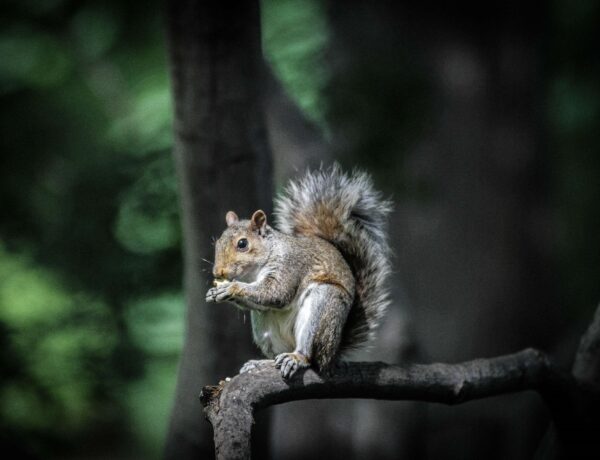Introduction
Can Squirrels Be Pets: The idea of keeping a squirrel as a pet may seem whimsical, conjuring up images of cute, fluffy creatures scampering around a cozy home. After all, squirrels can be found in abundance in many parts of the world, and their playful antics and bushy tails make them a captivating species to observe. However, the question of whether squirrels smart can be pets is not as straightforward as it may appear. Squirrels are undoubtedly charismatic and fascinating creatures, with their agility and inquisitiveness often winning the hearts of those who encounter them in the wild. Yet, the prospect of domesticating these wild animals raises ethical, legal, and practical considerations that merit careful examination.
In the complexities surrounding the notion of squirrels as pets, considering various aspects such as their natural behavior, the legal restrictions in place, the ethical concerns associated with their captivity, and the practical challenges of caring for them in a domestic setting. While the desire to form a bond with these enchanting creatures is understandable, it is crucial to approach the idea with a clear understanding of the implications involved. First and foremost, it is essential to recognize that squirrels are wild animals by nature. They have evolved over millennia to thrive in their natural habitats, adapting to various ecological niches and relying on instinctual behaviors for survival.
Attempting to keep a squirrel as a pet means removing it from its natural environment, which can be detrimental to both the animal and its ecosystem. We must consider whether it is ethical to disrupt the life of a wild creature for our own amusement. Moreover, the legal landscape surrounding the ownership of squirrels varies from place to place. Many regions have stringent regulations in place that prohibit or restrict the possession of wildlife as pets, including squirrels. Violating these laws can result in severe consequences, including fines and even imprisonment. It is essential to familiarize oneself with local and national regulations before attempting to keep a squirrel as a pet.

Is squirrel a good pet?
They aren’t domestic animals and are supposed to be in the wild where they belong. They need their freedom and space, so the process of trying to domesticate them will be highly stressful.
One of the first things to contemplate when thinking about a pet squirrel is the legal aspect. In many places, it is illegal to keep squirrels as pets without the proper permits and licenses. These regulations exist for several reasons, primarily to protect both the animals and the ecosystem. Squirrels are wild animals, and their removal from their natural habitat can disrupt local ecosystems and populations. Therefore, it’s essential to research and understand the specific laws and regulations in your area regarding squirrel ownership.
Ethical considerations also play a significant role in the debate over whether squirrels make good pets. Squirrels are creatures of the wild, and their natural behaviors are finely tuned for survival in their specific environments. Attempting to domesticate them can lead to stress, health problems, and behavioral issues. It’s crucial to ask whether it’s ethical to take a wild animal out of its natural habitat for our entertainment or companionship.
Squirrels have unique needs that can be challenging to meet in a domestic setting. Their diet, for example, consists primarily of nuts, fruits, and vegetation, and it may be difficult to them with a balanced diet in captivity. Squirrels are also highly active animals that require ample space and mental stimulation. Keeping them in a confined space, such as a cage, can lead to stress and unhappiness.
Is it OK to pet squirrels at home?
Squirrels may live in your backyard or neighborhood. They are fun to watch scamper around, and you may consider that they would make cute pets. As a general rule, squirrels aren’t domesticated and aren’t good animals to keep as pets.
From an ethical standpoint, keeping squirrels as pets raises significant concerns. Squirrels are wild animals by nature, and their behaviors are finely tuned for survival in their natural habitats. Attempting to domesticate them can lead to stress, behavioral issues, and health problems for the animals. It’s essential to whether it is morally acceptable to remove a wild animal from its natural environment for personal amusement or companionship.
The legal landscape surrounding squirrel ownership varies significantly depending on where you live. Many regions have stringent regulations in place regarding the possession of wildlife as pets, including squirrels. These laws are in place to protect both the animals and the ecosystems they inhabit. Violating these regulations can result in serious legal consequences, including fines and confiscation of the animal. Before considering a pet squirrel, it is imperative to research and understand the specific laws and regulations in your area.
Caring for squirrels in a domestic setting is a demanding task. Squirrels have unique dietary requirements, primarily consisting of nuts, fruits, and vegetation. Them with a balanced diet can be challenging. Additionally, squirrels are highly active animals that require ample space and mental stimulation. Keeping them in a confined space, such as a cage, can lead to unhappiness and health problems.
Do squirrels carry diseases?
Squirrels are known to carry numerous diseases, though only a few are dangerous to humans. Some of the more common include tularemia, typhus, plague, and ringworm. Such diseases are transmitted through bites or other forms of direct contact with infected squirrels.
Squirrels can host ticks and fleas, which can carry diseases like Lyme disease and typhus. If you come into contact with a squirrel that has ticks or fleas, there is a risk of these parasites transferring to you. Squirrels, like many wild animals, can carry Salmonella bacteria. Contact with their feces or urine can potentially lead to Salmonella infection in humans, which can cause symptoms such as diarrhea, fever, and abdominal cramps.
Although less common, squirrels can also carry Leptospira bacteria, which can cause leptospirosis in humans. This disease can lead to a range of symptoms, including fever, chills, muscle aches, and in severe cases, kidney or liver damage. Do not attempt to handle or touch squirrels, especially if they appear sick or injured. If you must handle a squirrel for rescue purposes, wear protective gloves and wash your hands thoroughly afterward.
Ensure that your pets, such as cats and dogs, do not come into close contact with squirrels, as they can also be at risk of disease transmission. After spending time outdoors or handling anything that may have come into contact with squirrels, wash your hands with soap and warm water to reduce the risk of disease transmission. If you have a squirrel infestation in your home or yard, take measures to control fleas and ticks, which can carry diseases.
Is it OK to touch a squirrel?
They May Bite or Scratch
Scratches and bites can also become infected, as these mammals carry bacteria on their coats, teeth, and claws. If you want to interact with a squirrel at a park or in your yard, leave the food where they can reach it but avoid touching any animal directly.
Health Risks: Squirrels can carry diseases, including zoonotic diseases that can be transmitted to humans. Contact with a squirrel, especially if it is sick or injured, can put you at risk of contracting diseases like Salmonella, Leptospirosis, or diseases carried by parasites like ticks and fleas.
Stress and Harm to the Squirrel: Wild animals like squirrels are adapted to their natural environments, and human interaction can be stressful and harmful to them. Handling a squirrel can lead to stress, injury, or abandonment by its mother if it’s a juvenile.
Legal and Ethical Concerns: In many places, it is illegal to touch or keep squirrels as pets without the necessary permits or licenses. Ethically, it’s to consider whether your desire to touch a squirrel is in the best interest of the animal and its natural behavior.
Can squirrels trust you?
In fact, squirrels are typically less afraid of human beings than they are of other animals. Squirrels not only recognize human beings; they also can be trained to come for food when it’s offered consistently.
Limited Physical Contact: While squirrels may approach and even take food from your hand, they typically do not enjoy physical contact like petting or cuddling. Attempting to touch or handle them can lead to stress and potential injury to the squirrel.
No Emotional Bond: Squirrels do not form the same kind of emotional bond with humans that domesticated pets do. Any trust they exhibit is often tied to the expectation of food or safety.
Wild Behavior: Squirrels may continue to exhibit wild behaviors, such as digging, climbing, and foraging, even if they have developed some trust with humans. Their natural instincts and behaviors remain intact.
Variable Trust: Trust levels can vary significantly among individual squirrels. Some may be more trusting and approachable, while others may remain cautious and distant. If you choose to feed squirrels, appropriate foods like nuts, seeds, or fruits. Avoid feeding them unhealthy or processed foods.
Are squirrels intelligent?
All rodents are intelligent animals, but the squirrel crowns the list for intelligence. While a rat/mouse can outsmart and sometimes outmaneuver a pursuing human, squirrels’ quickness and intellect give them a lead over other predators and more giant creatures.
They learn to adapt their foraging behaviors depending on food availability. For example, they might focus on acorns during a mast year and switch to other food sources when acorns are scarce. Some squirrel species have been observed using tools, such as sticks, to dig or pry open hard-to-reach food items.
Squirrels have been known to overcome obstacles to access food, such as figuring out how to navigate tricky bird feeders or outsmarting squirrel-proof mechanisms. Squirrels use vocalizations and body language to communicate with one another. They have specific calls to warn of predators, signal distress, or communicate mating intentions. The complexity of their communication system suggests a level of social intelligence.
They create food caches to store surplus food for the winter. Their ability to the locations of these caches is essential for their survival during lean times. Squirrels maintain detailed mental maps of their territories, helping them find resources efficiently. In squirrels have been observed cooperating with one another, such as sharing food resources during times of scarcity.
What can I feed a squirrel?
Some people love these fluffy creatures whilst others have a strong dislike to them. As most people know, squirrels love most types of nuts but they will also eat fresh fruit and vegetables. The best thing to feed these animals is either Nuts in Shells, Jumbo Peanuts or specifically made Squirrel Food.
Squirrels are known for their fondness for acorns, particularly in the fall when they are abundant. These are a favorite of many squirrel species. Squirrels enjoy pecans, but they should be given in moderation due to their high fat content. Another nut that squirrels find appealing. While squirrels can eat almonds, they are not as commonly found in their natural diet, so offer them sparingly.
Squirrels love sunflower seeds, and they are readily available in many stores. These are nutritious and can be a good occasional treat. Offered in moderation, sesame seeds can be a tasty to their diet. Blueberries, strawberries, and raspberries can be as a treat. Squirrels can eat bananas, but they should be given sparingly due to their high sugar content.
Sliced or shredded carrots are a good option. Fresh or frozen peas can be occasionally. These leafy greens can be offered in moderation. Commercial squirrel food mixes are available at many pet stores and can a balanced diet. These mixes often contain a combination of nuts, seeds, and dried fruits specifically formulated for squirrels.
Squirrels need access to fresh water for drinking and staying hydrated. Providing a shallow dish of clean water in your yard or garden can be beneficial, especially during hot weather. To avoid offering squirrels processed or unhealthy foods, such as sugary snacks, salty foods, and human junk food. These items can be harmful to their health. Monitor their consumption and adjust your feeding accordingly.
Can I touch baby squirrels?
If you confirm the found squirrel is an infant, carefully examine it for any injuries or infections. Use towels, cloths, or gloves to handle the animal — you do not want to leave your scent on the young one. If possible, use a warm cloth or towel to care for the baby.
In many regions, it is illegal to keep or handle wild animals, including baby squirrels, without the appropriate permits or licenses. These laws are in place to protect both wildlife and humans. Violating these regulations can result in fines and other legal consequences.
From an ethical standpoint, it is essential to consider whether interfering with wild animals is in their best interest. Wildlife should be left undisturbed in their natural habitats whenever possible to allow them to grow and develop as nature intended. First, watch from a distance to determine if the mother squirrel is nearby. Mother squirrels often leave their young alone for periods but return to care for them.
It’s best to let the mother care for her babies if she is around. If you must approach the baby squirrels, wear gloves to minimize your scent transfer and reduce stress on the animals. If you believe the baby squirrels are truly orphaned, injured, or in distress, contact a local wildlife rehabilitation center or a licensed wildlife rehabilitator for guidance. These professionals have the experience and resources to care for and rehabilitate wild animals properly.

Conclusion
The squirrels can be pets is a complex and multifaceted one, with ethical, legal, and practical dimensions that must all be carefully considered. As we conclude our exploration of this topic, it becomes evident that the idea of keeping squirrels as pets is fraught with challenges and potential consequences. From an ethical standpoint, the domestication of wild animals like squirrels raises significant concerns. These creatures are adapted to their natural environments, and removing them from those habitats can disrupt their lives and harm their well-being. It’s essential to recognize that squirrels have instincts and behaviors that are honed for survival in the wild.
Attempting to transform them into household companions may not be in their best interest. The legal framework surrounding squirrel ownership is often stringent, with many regions having strict squirrel regulations to protect both the animals and the ecosystems they inhabit. Violating these laws can result in serious legal consequences, making it imperative for anyone considering squirrels as pets to be well-informed about the specific regulations in their area. On a practical level, caring for squirrels in a domestic setting is a demanding endeavor. These animals have unique dietary and environmental requirements that can be challenging to meet adequately.
The idea of having a squirrel as a pet may be appealing to some, it is a concept fraught with complexities and potential pitfalls. It requires careful consideration of ethical implications, a thorough understanding of legal restrictions, and a commitment to the highest standard of care. Rather than seeking to make squirrels into pets, there are alternative ways to appreciate and coexist with these captivating creatures. Observing them in their natural habitats, creating squirrel-friendly environments in our own outdoor spaces, and supporting local wildlife rehabilitation centers are just a few ways to foster a connection with squirrels while respecting their natural roles in the ecosystem.





No Comments